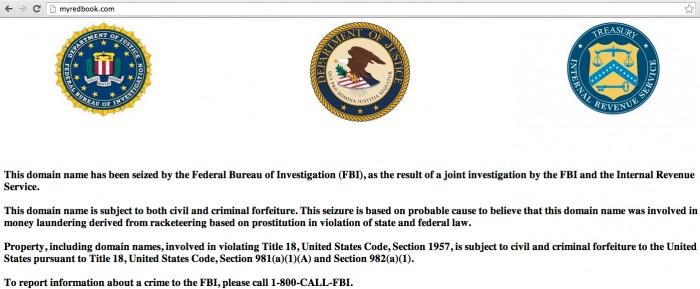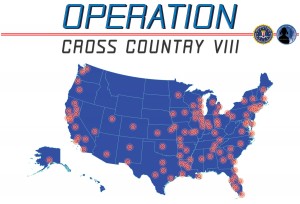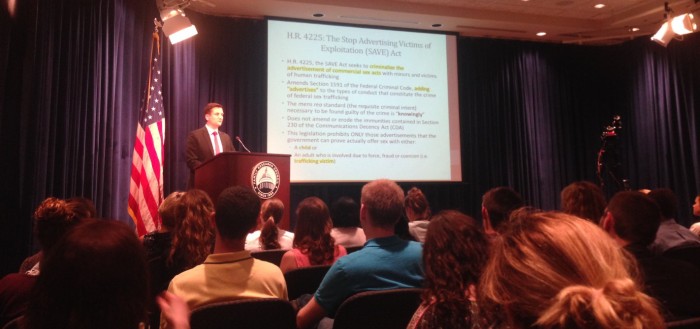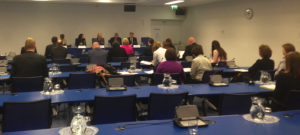Shared Hope International, Arizona State University Release Findings of New Study on Buyers of Sex with Children
PRESS RELEASE
PHOENIX, ARIZONA – According to a new study which will be released on August 25 by Shared Hope International, in partnership with Arizona State University, buyers who purchased sex acts with minors are avoiding sex trafficking charges. The Demanding Justice Report documents the criminal justice outcomes of buyers, with the ultimate goal of identifying gaps in anti-demand law enforcement in order to generate creative solutions to develop effective strategies to combat demand. The report explores national trends in the enforcement of anti-demand laws. The research also tracks 134 cases from arrest to sentencing in four target locations (Phoenix, AZ; Portland, OR; Seattle, WA; and Baltimore, MD/Washington, D.C.) to determine whether buyers are being sentenced to the fullest extent of the law. On the corresponding campaign website, www.demandingjustice.org, users can view convicted buyers in their state and take action to combat demand.
Demanding Justice Report and Campaign Website Release Press Conference
August 25 | 11:30 am MST Burton Barr Central Library 1221 N. Central Ave., 85004Speakers:
- Congresswoman Linda Smith (1995-99), President and Founder, Shared Hope International
- U.S. Attorney Brendan Johnson, United States Attorney for the District of South Dakota
- Commander James Gallagher, Phoenix Police Department and Associate Director of Research Innovation, Office of Sex Trafficking Intervention Research at Arizona State University
- Prof. Dominique Roe-Sepowitz, Director, Office of Sex Trafficking Intervention Research at Arizona State University
- Sex trafficking survivor and advocate
All speakers will be available for individual interviews immediately following the press conference from 12:00-12:30 pm MST.
On August 26, Shared Hope International, in partnership with AZPOST, is hosting a training for law enforcement officers and prosecutors on how to investigate and prosecute the buyer in child sex trafficking crimes.


 Even more surprising is the fact that websites earned a total of $45 million in revenue from prostitution advertising in the United States last year. In the average month Backpage.com receives $4-$5 million from these types of ads, which often involve underage children. Legitimate, legal, multimillion dollar corporations are currently profiting from criminal activity and the plight of trafficked children as they generally choose to ignore the fact that their services are facilitating these crimes. It should be noted that not every corporation has disregarded this issue, however, as Google has recently made a highly publicized decision to remove all pornographic ads and links to sexually explicit websites from their services.
Even more surprising is the fact that websites earned a total of $45 million in revenue from prostitution advertising in the United States last year. In the average month Backpage.com receives $4-$5 million from these types of ads, which often involve underage children. Legitimate, legal, multimillion dollar corporations are currently profiting from criminal activity and the plight of trafficked children as they generally choose to ignore the fact that their services are facilitating these crimes. It should be noted that not every corporation has disregarded this issue, however, as Google has recently made a highly publicized decision to remove all pornographic ads and links to sexually explicit websites from their services. In attendance to speak as members of the discussion panel were Tejal Jesrani of the UNODC, Bjorn-Erik Ludvigsen of NCIS Norway, Andrew Oosterbaan of the USDOJ Child Exploitation and Obscenity Section, and Ethel Quayle of the University of Edinburgh.
In attendance to speak as members of the discussion panel were Tejal Jesrani of the UNODC, Bjorn-Erik Ludvigsen of NCIS Norway, Andrew Oosterbaan of the USDOJ Child Exploitation and Obscenity Section, and Ethel Quayle of the University of Edinburgh.





